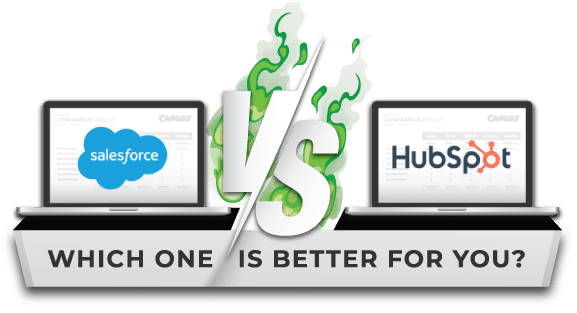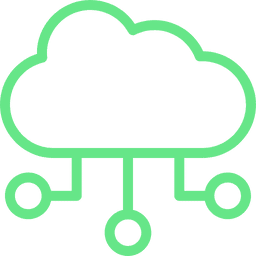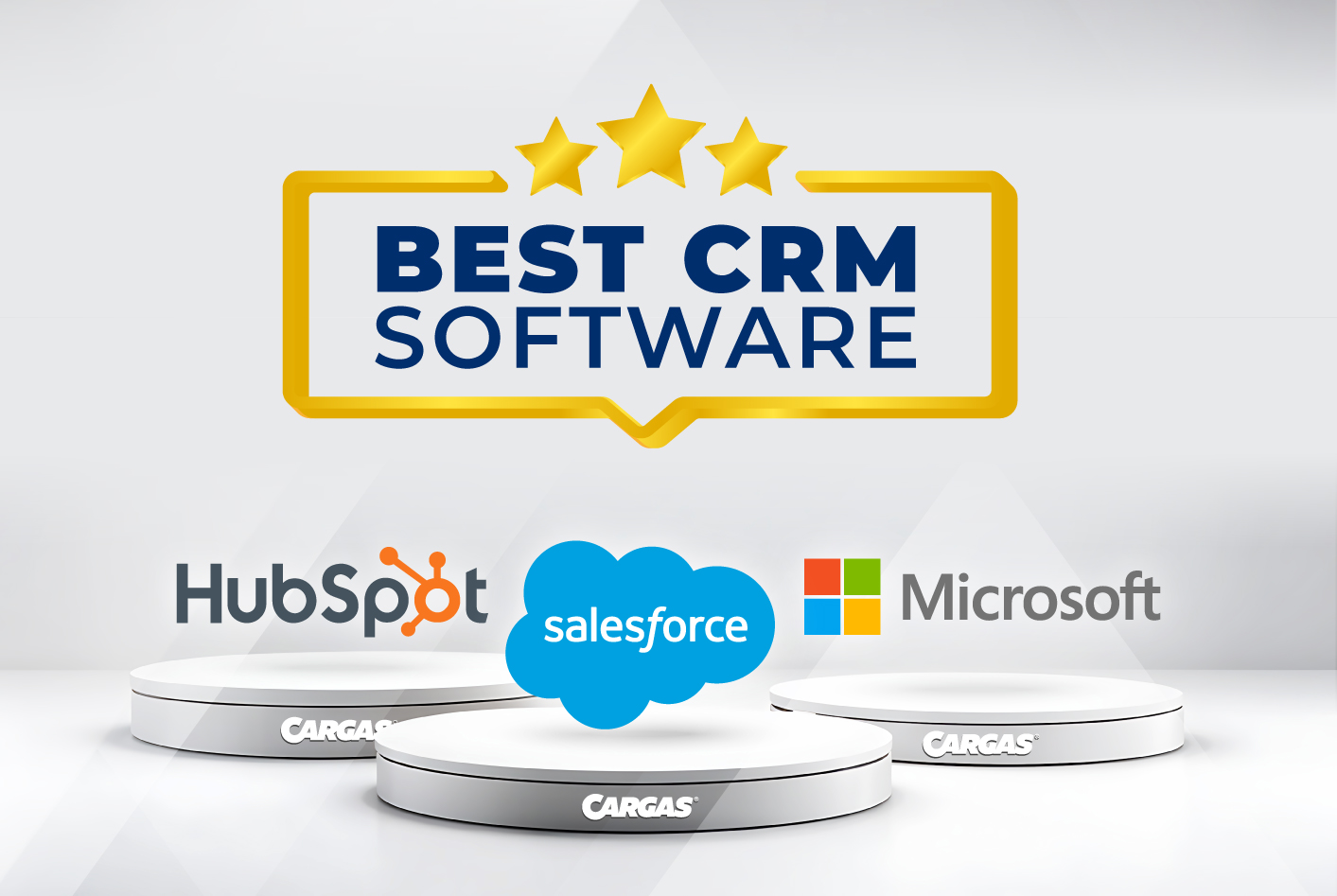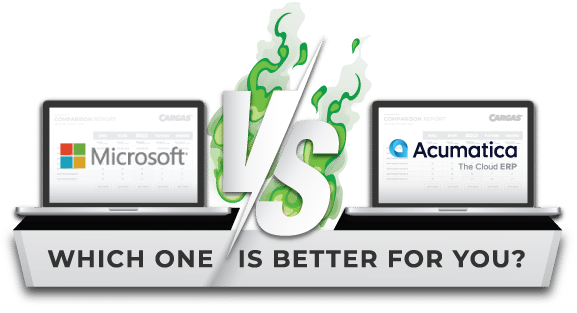Salesforce Sales Cloud vs. HubSpot Sales Hub
Compare the affordability and flexibility of two top CRM solutions
Salesforce Sales Cloud and HubSpot Sales Hub are two leading CRM solutions with overlapping features and functions. While these solutions may share capabilities, they have slightly different areas of focus, and their developers take different approaches to software design. This means one may be a better fit for your business than the other.

Take advantage of our side-by-side comparison report by entering your information: ►
Customization vs. Ease of Use
HubSpot Sales Hub is ready to use out of the box, and its broad capabilities offer basic CRM functionality for smaller businesses. Meanwhile, Salesforce Sales Cloud is built to be flexible and customizable, particularly for larger organizations that want to adapt the software to meet their needs.
Salesforce Sales Cloud is highly customizable, which makes it a great solution for mid-sized and enterprise businesses. Smaller businesses can use Salesforce products, but the software is more complex and packed with features and customization options they simply may not need. Often, larger organizations have more time and higher budgets to customize the software with add-ons and other unique features for specific products, services, and industries.
HubSpot is built for smaller businesses. Its functionality is broad and well-suited for most companies, offering plenty of essential modules that can be used right out of the box. It’s easy to set up, easy to learn, and easy to use—three factors that are important for organizations with basic customer relationship management needs.
Comparison of Price Points
Cost is one of the main factors companies consider when choosing new software. However, hidden fees and differing pricing tiers may complicate decision-making.
Salesforce has no minimum user requirements, which makes the software cost per user a bit more obvious up-front. However, fees for customizations and add-ons should be considered in calculating the actual cost of implementation. Larger organizations with more users are more likely to need niche functionality, which means those organizations must be willing to pay more for the software, while smaller businesses with broad needs and only a few users will find the solution affordable.
HubSpot’s freemium model is accessible for smaller organizations, but at higher pricing tiers, your organization is required to purchase more user licenses. For example, while the Starter tier only requires you to purchase one user license, the Enterprise tier sets a minimum of ten users to purchase. Depending on which features your business needs and how large your business and budget are, HubSpot may or may not be a good fit.
Modules vs. Add-Ons
How do you want your software environment to look? Do you want to rely on a handful of solutions equally, or would you rather have a central hub fleshed out with add-ons?
Outside of the software itself being highly customizable, Salesforce encourages developers to build onto the solution. Because of this open invitation and the software’s open API, Salesforce has an extensive developer community and endless options for extending your software. This also means that if you’re looking for a solution that doesn’t yet exist on Salesforce AppExchange, you can easily find a resource to build it.
HubSpot has its own network of partners and add-ons, but its unified code base means the easiest way to extend the solution is to work within its product set. As mentioned earlier, HubSpot Sales Hub works exceptionally well with other HubSpot “Hubs” for Marketing, Service, Content Management (CMS), and Operations.
Sum It Up
Salesforce Sales Cloud has a higher base cost than HubSpot Sales Hub, but the cost accounts for the solution’s flexibility and customization. With a variety of capabilities and add-ons, Salesforce Sales Cloud is the ideal solution for larger organizations with advanced needs.
HubSpot Sales Hub is built for smaller organizations that need broad CRM functionality. Although multiple licenses are required for the higher pricing tiers, the software follows a “freemium” model to provide reasonable prices for different organization types.
At Cargas, our expert consulting team specializes in CRM solutions, including Salesforce Sales Cloud. If you’re trying to understand whether Salesforce is a good fit for your business, we’d love to help. Let’s connect to talk about your needs and what you’re looking for in a software solution.

Let’s Chat
Still have questions? Get in touch with our expert team of software professionals.






